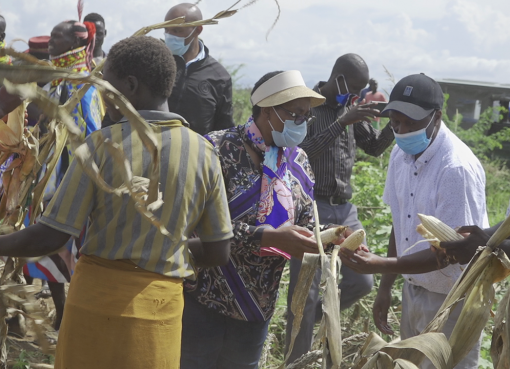Poultry farmers in Nakuru County have threatened to stop keeping layers breed of chicken claiming that they were incurring huge losses in sustaining them.
The farmers claimed that a number of them had begun rearing improved indigenous chicken breeds which gives better returns.
Farmers say indigenous chicken matures within five months and sells at between sh.800 and sh.1000.
The County Secretary (CS) for Poultry Keepers Association, Michael Wachira said their cries and appeals to the government had not produced any assistance.
He added that they could not continue incurring losses while consumers enjoyed their eggs at little cost.
The CS was speaking to KNA today during a meeting of poultry farmers at Bahati sub-county.
Wachira said the feeds were too expensive with a 50-kilogramme bag retailing at Sh.1, 500 and yet a chicken feeds on between 80 and 134 grammes per day meaning if a farmer had 100 layers the feed would last only a week, yet the eggs’ proceeds in that week cannot replenish the feeds.
The production of one egg costs a framer seven shillings, while Ugandan farmers produce one at three shillings, according to the KARLO research which explains why their eggs were much cheaper than the locally produced ones.
Wachira added that smallholder farmers in the country had lost hope of ever unshackling themselves from poverty due to expensive inputs, uncompetitive pricing, poor marketing and worst of all, hollow promises from the devolved units.
He appealed to the governors to involve them while formulating policies that they perceive might improve the lives of farmers.
“What amazes us are the many seminars and workshops which are held on our behalf and yet we are not involved, how on earth can they know and solve our problems without giving us a chance to articulate them?’’ he wondered.
He however, praised the Naivasha KARLO centre for the improved indigenous chicken, which not only matures fast but was tasty and had given poultry farmers’ hope, since the returns were better and less involving.
Wachira said they had no problem with imported eggs and clarified that what they require is government subsidies just like other farmers in the region.
He added that they had tried everything, including trying to manufacture their own feeds but they were sabotaged by the bigger feeds manufactures who are not willing to lose their gigantic profits.
By Veronica Bosibori




